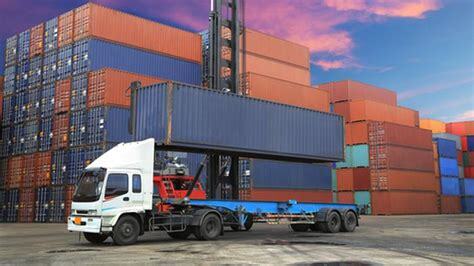No Trucking Way: The Role of Trucker Exploitation in Broken Supply Chains and Shortages

By Michael Every of Rabobank
Zero Hedge
The financial economy and real economy used to live with each other happily: now they are in a long-distance relationship reliant on logistics to keep in touch. What happens when those logistics break down? (Very bad things, as I was discussing here the other day.)
We have covered the ocean-carrier side of this crisis (‘In Deep Ship’), and the new fee equivalent to $1m a day, and rising $1m each following day, for a 10,000 TEU vessel whose cargo is stuck in LA/LB port. However, we stressed in that report that the supply chain issue is more systematic. So, allow me to share quotes from an article exposing there is ‘No Trucking Way’ we are about to return to normal:
“Think of going to the port as going to WalMart on Black Friday, but imagine only ONE cashier for thousands of customers…Most port drivers are ‘independent contractors’, leased onto a carrier who is paying them by the load. Whether their load takes two hours, fourteen hours, or three days to complete, they get paid the same, and they have to pay 90% of their truck operating expenses…I honestly don’t understand how many of them can even afford to show up for work…In some cases they work 70 hour weeks and still end up owing money to their carrier.
So when the coastal ports started getting clogged up last spring due to the impacts of COVID on business everywhere, drivers started refusing to show up. Congestion got so bad that instead of being able to do three loads a day, they could only do one. They took a 2/3 pay cut and most of these drivers were working 12 hours a day or more…Many drivers simply quit. However, while the pickup rate for containers severely decreased, they were still being offloaded from the boats. And it’s only gotten worse…The ‘experts’ want to say we can do things like open the ports 24/7, and this problem will be over in a couple weeks. They are blowing smoke, and they know it.”
The author also points out a crippling shortage of truck chassis; warehouse workers, again due to low-pay and Covid, so unloading takes longer; and warns soon there will be less, not more truck drivers. Crucially, he bewails that ocean carriers, ports, trucking companies, warehouses, and retailers are all making great money – so won’t invest before the system collapses further. If so, this book-ends the 1980 deregulation of the US trucking industry under President Carter.
Meanwhile, Senator Manchin just said ‘No Trucking Way’ to the White House’s fiscal plans, again, which already fail to address the above logistical problems. Perhaps it’s time for US economists to study what weak, share-cropper logistics and on-off fiscal and central-bank liquidity largesse do for emerging markets’ macroeconomic and financial stability?
[…]
The Most Revolutionary Act
- Stuart Jeanne Bramhall's profile
- 11 followers



